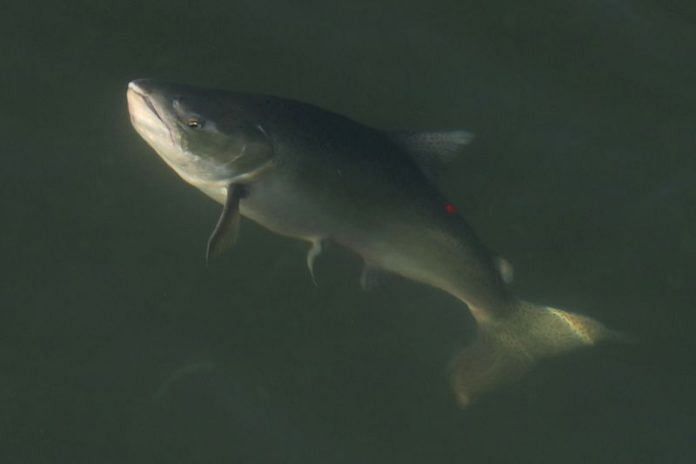By Nia Williams
(Reuters) -Canada will ban open-net salmon farms off the coast of British Columbia by the middle of 2029 in order to help protect dwindling wild Pacific salmon populations, the federal government said on Wednesday.
Salmon are a culturally and ecologically significant species on Canada’s west coast, but more than half of the 9,000 distinct populations in British Columbia are in a state of decline, according to the Pacific Salmon Foundation.
The province has dozens of open-net salmon farms, which campaigners say can spread lice and disease to wild fish. In 2019 Liberal Prime Minister Justin Trudeau pledged to phase out open-net farms by 2025.
In a statement released on Wednesday, Fisheries and Oceans Minister Diane Lebouthillier said existing salmon aquaculture licenses will be renewed for five years to ensure a successful transition, but with stricter conditions around managing sea lice on farmed fish, reporting requirements for the industry, and monitoring of marine mammal interactions.
“It’s great to see the federal government commit to concrete deadlines, even though they do not meet the government’s original commitment to transition from open-net pens by 2025 or the urgency of the moment given the dire state of many wild salmon runs,” said Kilian Stehfest, marine conservation specialist for the David Suzuki Foundation.
Salmon farming supports 7,000 jobs in coastal communities and contributes about C$1.5 billion ($1.09 billion) annually to the provincial economy, according to the BC Salmon Farmers Association.
A number of First Nations and coastal communities rely on open-net salmon farms for their livelihood and the government intends to release a draft salmon aquaculture transition plan by the end of July.
From July 1 this year only closed-containment systems on land or in the sea will be considered for new salmon aquaculture licenses.
Lebouthillier said the government recognized closed-containment systems would be a more expensive investment and planned to issue nine-year licenses to successful applicants to ensure greater certainty.
While some Indigenous communities in British Columbia have been calling for an end to open-net salmon farms, others criticized Ottawa for lack of adequate consultation and the speed of the phase-out.
“Five years to transition to land-based or closed-containment in my territory is the same as shutting our operations down,” said Hereditary Chief Hasheukumiss of the Ahousaht First Nation on the west coast of Vancouver Island at a press conference.
The British Columbia government urged Ottawa to support local communities through the transition period by funding new economic opportunities and creating good jobs.
“We recognize the importance of meaningful and thoughtful engagement with First Nations partners and communities as we move forward, in order to ensure that economic impacts are mitigated,” federal Natural Resources Minister Jonathan Wilkinson said in a statement.
($1 = 1.3707 Canadian dollars)
(Reporting by Nia Williams in British ColumbiaEditing by Chris Reese and Sandra Maler)
Disclaimer: This report is auto generated from the Reuters news service. ThePrint holds no responsibilty for its content.



